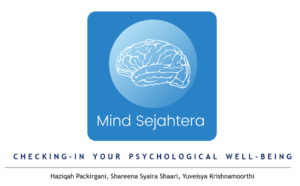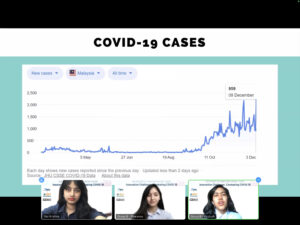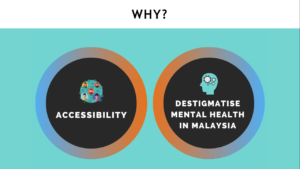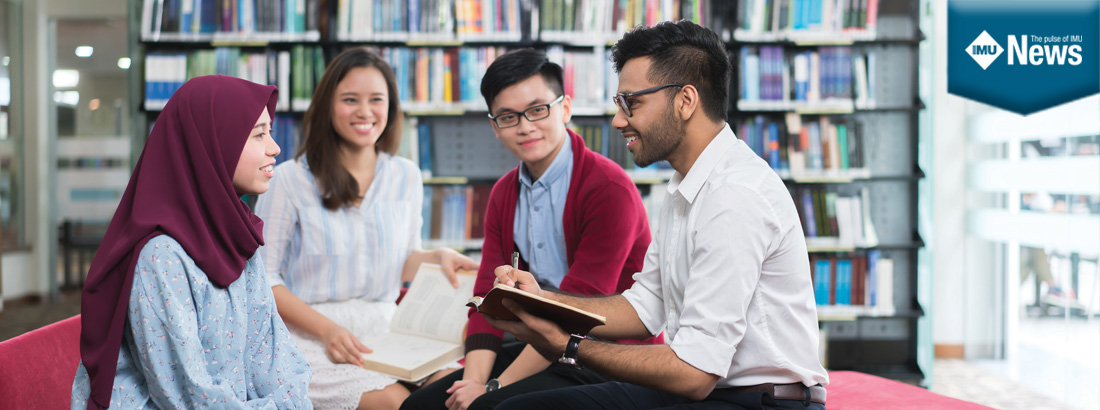[fusion_builder_container hundred_percent=”no” equal_height_columns=”no” menu_anchor=”” hide_on_mobile=”small-visibility,medium-visibility,large-visibility” class=”” id=”” background_color=”” background_image=”” background_position=”center center” background_repeat=”no-repeat” fade=”no” background_parallax=”none” parallax_speed=”0.3″ video_mp4=”” video_webm=”” video_ogv=”” video_url=”” video_aspect_ratio=”16:9″ video_loop=”yes” video_mute=”yes” overlay_color=”” overlay_opacity=”0.5″ video_preview_image=”” border_size=”” border_color=”” border_style=”solid” padding_top=”” padding_bottom=”” padding_left=”” padding_right=””][fusion_builder_row][fusion_builder_column type=”1_1″ layout=”1_1″ background_position=”left top” background_color=”” border_size=”” border_color=”” border_style=”solid” border_position=”all” spacing=”yes” background_image=”” background_repeat=”no-repeat” padding=”” margin_top=”0px” margin_bottom=”0px” class=”” id=”” animation_type=”” animation_speed=”0.3″ animation_direction=”left” hide_on_mobile=”small-visibility,medium-visibility,large-visibility” center_content=”no” last=”no” min_height=”” hover_type=”none” link=””][fusion_text] The Department of Psychology at IMU had a very eventful December 2020. Firstly, we had the privilege of organising a workshop on a topic that is Narrative Psychiatry: Introduction to Psychobiography and Life Stories. In this workshop preview, the introductory speaker, Dr Fredrick A Boholst presented Psychobiography as a method not just for analysing life stories but as a possible psychotherapeutic approach to attain integration, meaning, and healing. Dr Lewis-Mehl Madrona, our guest of honour, who live-streamed from United States, explored the basis of narrative philosophy in psychiatry and illustrated how it is emerging as a progressively stronger voice in the wide array of perspectives on psychiatry. He argued that story telling is a powerful mechanism for restructuring not just neural networks, cognitions and behavioural changes, but also a person’s identity and personality. The workshop preview was an intellectual teaser for a more comprehensive workshop on Narrative Psychiatry that IMU hopes to run in the second quarter of 2021. Beyond this, it is further hoped that this would pave the way for a convergence among the different but interdependent fields of General Medicine, Psychiatry, Clinical Psychology, and Counselling Psychology at IMU as it pushes forward as a learning organisation that is committed to serving society. Students of this Department also got involved in an exciting competition! In response to the coronavirus outbreak and global shutdown, IMU’s Institute for Research, Development and Innovation (IRDI) invited creative problem-solvers from within the IMU community to participate in the Research Hackathon 2020 challenge for a chance to win a RM 20,000 research award to develop proof-of concept solutions to manage the country’s COVID-19 challenges.
Three undergraduate Psychology students; Haziqah Packirgani, Yuveisya Krishnamoorthi, and Shareena Syaira Shaari, under the guidance of their mentor, Alexius Cheang, pitched their idea of addressing mental health issues faced by the public through the usage of their app, aptly titled Mind Sejahtera.
In view of the global pandemic, the students wanted to improve society’s psychological health as they noticed the increasing mental health suffering of the public. They noted that when these individuals finally decide to reach out for help, they did not have easy access to proper facilities due to lack of knowledge and financial constraints. In addition, different people had different needs and required different approaches. However, all Malaysians used the MySejahtera app and this served as a common platform to reach out to the everyday person. The goal was to integrate Mind Sejahtera into the MySejahtera app, so that all Malaysians would have better access to evidence-based psychological aids to improve their well-being on a nationwide scale. [/fusion_text][/fusion_builder_column][/fusion_builder_row][/fusion_builder_container][fusion_builder_container hundred_percent=”no” equal_height_columns=”no” menu_anchor=”” hide_on_mobile=”small-visibility,medium-visibility,large-visibility” class=”” id=”” background_color=”” background_image=”” background_position=”center center” background_repeat=”no-repeat” fade=”no” background_parallax=”none” enable_mobile=”no” parallax_speed=”0.3″ video_mp4=”” video_webm=”” video_ogv=”” video_url=”” video_aspect_ratio=”16:9″ video_loop=”yes” video_mute=”yes” overlay_color=”” overlay_opacity=”0.5″ video_preview_image=”” border_size=”” border_color=”” border_style=”solid” margin_top=”” margin_bottom=”” padding_top=”20px” padding_right=”” padding_bottom=”20px” padding_left=””][fusion_builder_row][fusion_builder_column type=”1_1″ layout=”1_1″ spacing=”” center_content=”no” hover_type=”none” link=”” min_height=”” hide_on_mobile=”small-visibility,medium-visibility,large-visibility” class=”” id=”” background_color=”” background_image=”” background_position=”left top” background_repeat=”no-repeat” border_size=”0″ border_color=”” border_style=”solid” border_position=”all” padding=”” dimension_margin=”” animation_type=”” animation_direction=”left” animation_speed=”0.3″ animation_offset=”” last=”no”][fusion_text] 

 [/fusion_text][/fusion_builder_column][/fusion_builder_row][/fusion_builder_container][fusion_builder_container hundred_percent=”no” equal_height_columns=”no” menu_anchor=”” hide_on_mobile=”small-visibility,medium-visibility,large-visibility” class=”” id=”” background_color=”” background_image=”” background_position=”center center” background_repeat=”no-repeat” fade=”no” background_parallax=”none” enable_mobile=”no” parallax_speed=”0.3″ video_mp4=”” video_webm=”” video_ogv=”” video_url=”” video_aspect_ratio=”16:9″ video_loop=”yes” video_mute=”yes” overlay_color=”” overlay_opacity=”0.5″ video_preview_image=”” border_size=”” border_color=”” border_style=”solid” margin_top=”” margin_bottom=”” padding_top=”20px” padding_right=”” padding_bottom=”20px” padding_left=””][fusion_builder_row][fusion_builder_column type=”1_1″ layout=”1_1″ spacing=”” center_content=”no” hover_type=”none” link=”” min_height=”” hide_on_mobile=”small-visibility,medium-visibility,large-visibility” class=”” id=”” background_color=”” background_image=”” background_position=”left top” background_repeat=”no-repeat” border_size=”0″ border_color=”” border_style=”solid” border_position=”all” padding=”” dimension_margin=”” animation_type=”” animation_direction=”left” animation_speed=”0.3″ animation_offset=”” last=”no”][fusion_text] The Mind Sejahtera app would administer a questionnaire to ascertain the baseline mental health of the user and based on the results, to direct the users to evidence based resources whereby they could practice proven interventions and exercises to manage their mental health and boost th
[/fusion_text][/fusion_builder_column][/fusion_builder_row][/fusion_builder_container][fusion_builder_container hundred_percent=”no” equal_height_columns=”no” menu_anchor=”” hide_on_mobile=”small-visibility,medium-visibility,large-visibility” class=”” id=”” background_color=”” background_image=”” background_position=”center center” background_repeat=”no-repeat” fade=”no” background_parallax=”none” enable_mobile=”no” parallax_speed=”0.3″ video_mp4=”” video_webm=”” video_ogv=”” video_url=”” video_aspect_ratio=”16:9″ video_loop=”yes” video_mute=”yes” overlay_color=”” overlay_opacity=”0.5″ video_preview_image=”” border_size=”” border_color=”” border_style=”solid” margin_top=”” margin_bottom=”” padding_top=”20px” padding_right=”” padding_bottom=”20px” padding_left=””][fusion_builder_row][fusion_builder_column type=”1_1″ layout=”1_1″ spacing=”” center_content=”no” hover_type=”none” link=”” min_height=”” hide_on_mobile=”small-visibility,medium-visibility,large-visibility” class=”” id=”” background_color=”” background_image=”” background_position=”left top” background_repeat=”no-repeat” border_size=”0″ border_color=”” border_style=”solid” border_position=”all” padding=”” dimension_margin=”” animation_type=”” animation_direction=”left” animation_speed=”0.3″ animation_offset=”” last=”no”][fusion_text] The Mind Sejahtera app would administer a questionnaire to ascertain the baseline mental health of the user and based on the results, to direct the users to evidence based resources whereby they could practice proven interventions and exercises to manage their mental health and boost th
eir well-being. If the users wanted to speak directly to someone, they would be provided a list of contacts to qualified mental health professionals around the country, based on the user’s geographic location. In the end, this unique idea along with 2 others from competing teams all won the RM 20,000 research award each. When the results were announced, the three students felt a great sense of accomplishment and appreciation that their efforts were recognised, and they were filled with thrills and excitement over where the next step of this journey would take them. Haziqah had this to say, “This idea was a team effort and the credit goes to each member for their contribution. They have truly been a great team and I am absolutely lucky to have them.” [/fusion_text][/fusion_builder_column][/fusion_builder_row][/fusion_builder_container][fusion_builder_container hundred_percent=”no” equal_height_columns=”no” menu_anchor=”” hide_on_mobile=”small-visibility,medium-visibility,large-visibility” class=”” id=”” background_color=”” background_image=”” background_position=”center center” background_repeat=”no-repeat” fade=”no” background_parallax=”none” enable_mobile=”no” parallax_speed=”0.3″ video_mp4=”” video_webm=”” video_ogv=”” video_url=”” video_aspect_ratio=”16:9″ video_loop=”yes” video_mute=”yes” overlay_color=”” overlay_opacity=”0.5″ video_preview_image=”” border_size=”” border_color=”” border_style=”solid” margin_top=”” margin_bottom=”” padding_top=”20px” padding_right=”” padding_bottom=”20px” padding_left=””][fusion_builder_row][fusion_builder_column type=”1_1″ layout=”1_1″ spacing=”” center_content=”no” hover_type=”none” link=”” min_height=”” hide_on_mobile=”small-visibility,medium-visibility,large-visibility” class=”” id=”” background_color=”” background_image=”” background_position=”left top” background_repeat=”no-repeat” border_size=”0″ border_color=”” border_style=”solid” border_position=”all” padding=”” dimension_margin=”” animation_type=”” animation_direction=”left” animation_speed=”0.3″ animation_offset=”” last=”no”][fusion_text] ![]()
 [/fusion_text][/fusion_builder_column][/fusion_builder_row][/fusion_builder_container][fusion_builder_container hundred_percent=”no” equal_height_columns=”no” menu_anchor=”” hide_on_mobile=”small-visibility,medium-visibility,large-visibility” class=”” id=”” background_color=”” background_image=”” background_position=”center center” background_repeat=”no-repeat” fade=”no” background_parallax=”none” enable_mobile=”no” parallax_speed=”0.3″ video_mp4=”” video_webm=”” video_ogv=”” video_url=”” video_aspect_ratio=”16:9″ video_loop=”yes” video_mute=”yes” overlay_color=”” overlay_opacity=”0.5″ video_preview_image=”” border_size=”” border_color=”” border_style=”solid” margin_top=”” margin_bottom=”” padding_top=”20px” padding_right=”” padding_bottom=”20px” padding_left=””][fusion_builder_row][fusion_builder_column type=”1_1″ layout=”1_1″ spacing=”” center_content=”no” hover_type=”none” link=”” min_height=”” hide_on_mobile=”small-visibility,medium-visibility,large-visibility” class=”” id=”” background_color=”” background_image=”” background_position=”left top” background_repeat=”no-repeat” border_size=”0″ border_color=”” border_style=”solid” border_position=”all” padding=”” dimension_margin=”” animation_type=”” animation_direction=”left” animation_speed=”0.3″ animation_offset=”” last=”no”][fusion_text] Even though there is a long and tough journey ahead to fully develop this app, it is the hope of the three Psychology students that the Mind Sejahtera app would serve as a platform to destigmatise taking care of one’s mental health and encourage the public to reach out for help, just as they would with physical ailments. Above all else, the students hope that the Mind Sejahtera app delivers just as what its name suggests, to ensure the well-being of the minds of all Malaysian citizens. The above events are examples of how life in the field Psychology is never dull, always growing and always seeking to improve the lives of people in our community. [/fusion_text][fusion_table]
[/fusion_text][/fusion_builder_column][/fusion_builder_row][/fusion_builder_container][fusion_builder_container hundred_percent=”no” equal_height_columns=”no” menu_anchor=”” hide_on_mobile=”small-visibility,medium-visibility,large-visibility” class=”” id=”” background_color=”” background_image=”” background_position=”center center” background_repeat=”no-repeat” fade=”no” background_parallax=”none” enable_mobile=”no” parallax_speed=”0.3″ video_mp4=”” video_webm=”” video_ogv=”” video_url=”” video_aspect_ratio=”16:9″ video_loop=”yes” video_mute=”yes” overlay_color=”” overlay_opacity=”0.5″ video_preview_image=”” border_size=”” border_color=”” border_style=”solid” margin_top=”” margin_bottom=”” padding_top=”20px” padding_right=”” padding_bottom=”20px” padding_left=””][fusion_builder_row][fusion_builder_column type=”1_1″ layout=”1_1″ spacing=”” center_content=”no” hover_type=”none” link=”” min_height=”” hide_on_mobile=”small-visibility,medium-visibility,large-visibility” class=”” id=”” background_color=”” background_image=”” background_position=”left top” background_repeat=”no-repeat” border_size=”0″ border_color=”” border_style=”solid” border_position=”all” padding=”” dimension_margin=”” animation_type=”” animation_direction=”left” animation_speed=”0.3″ animation_offset=”” last=”no”][fusion_text] Even though there is a long and tough journey ahead to fully develop this app, it is the hope of the three Psychology students that the Mind Sejahtera app would serve as a platform to destigmatise taking care of one’s mental health and encourage the public to reach out for help, just as they would with physical ailments. Above all else, the students hope that the Mind Sejahtera app delivers just as what its name suggests, to ensure the well-being of the minds of all Malaysian citizens. The above events are examples of how life in the field Psychology is never dull, always growing and always seeking to improve the lives of people in our community. [/fusion_text][fusion_table]
[/fusion_table][/fusion_builder_column][/fusion_builder_row][/fusion_builder_container]

